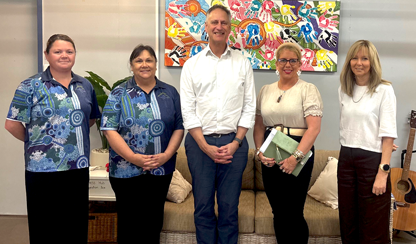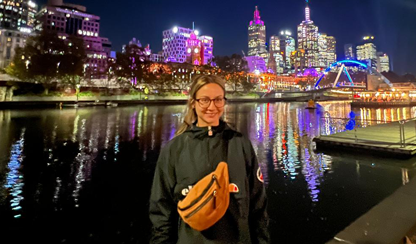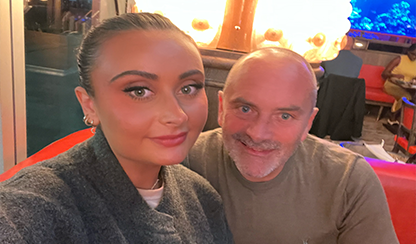01 August 2024
Institute news

Jonathon Cross has dodged hungry crocodiles, petted placid servals, and dabbled with funnel webs on his journey to our Molecular Proteomics lab. But it’s Jonathon himself who will turn a little feral this week as he supports his brother Tim at the Paris Olympics. Learn more as we go Fast Five with our hockey-loving research assistant.
Did you always want a career in science?
I always knew that I wanted to do something science related before starting university. I originally started uni thinking about becoming a vet or vet nurse. I’d volunteered in both Africa and Laos and had hands-on experience with cheetahs, servals, caracals, crocodiles and elephants in a rehabilitation, breeding and release program, and thought that’s where I’d like to take my career. However, early in my degree, my dad was diagnosed with prostate cancer, which started to deviate my interest into the cellular biology side of things to better understand the disease and contribute to related research.
You were involved in some very interesting work before you came to the Baker Institute, can you tell us a little bit about your journey?
My first experience being part of academia was during my Masters research at Agribio, an agricultural biosciences research and development facility at La Trobe Uni. My project there focussed on the genes responsible for synthesising beta-glucans in cereals, and identifying the amino acids essential for its function. Shortly after submitting my thesis, I secured a position at CSL Seqirus, where I was responsible for the production and manufacturing of antivenom for Australia’s venomous animals, including snakes, funnel web spiders and box jellyfish.
You like to challenge yourself and chose to return to academia, how did you end up at the Baker Institute and what do you do here?
After being at CSL, I realised how much I missed the academic environment, particularly the process of questioning and exploring scientific concepts. I applied for a research assistant position within David Greening’s team, where I was warmly welcomed. Since being here, I’ve acquired a lot of different skills and had the opportunity to collaborate with a number of other Baker Institute labs, and I’ve had the chance to refine some field methods that have developed and led to being first author on a published paper — a goal I’d set for myself.
Describe the feeling around publication of your first paper, something so many scientists aspire to?
It was a rollercoaster of emotions, as I wasn’t sure which day to celebrate — the day the paper was accepted, or the day that the paper was published? So I just celebrated on both days! I was also given the opportunity to present the findings at the Proteomics Symposium in Lorne this year, which was a fantastic experience. However, it was also bittersweet, as my father had passed away in 2022, so I couldn't share this special moment of my publication or presentation with him.
When you’re not at work, what might we find you doing?
When possible, I love travelling to new countries or attending music festivals. Defqon 1 has been my favourite so far! Otherwise, if I’m not busy catching up with friends, you'll likely find me at home, relaxing on the couch with my cat and playing Halo. I also play premier league hockey for Greensborough, so during the winter months, I'm usually out training and playing on weekends. My family has a long history at the club, and I've been playing hockey for as long as I can remember. This year is particularly exciting because my brother is representing Ireland in hockey at the Paris Olympics. My mum and I are heading to Paris to support him, and we're incredibly proud of his achievement.





